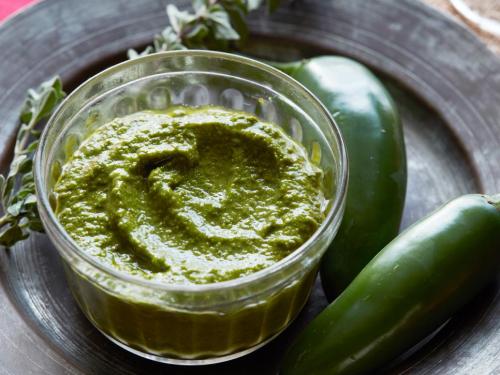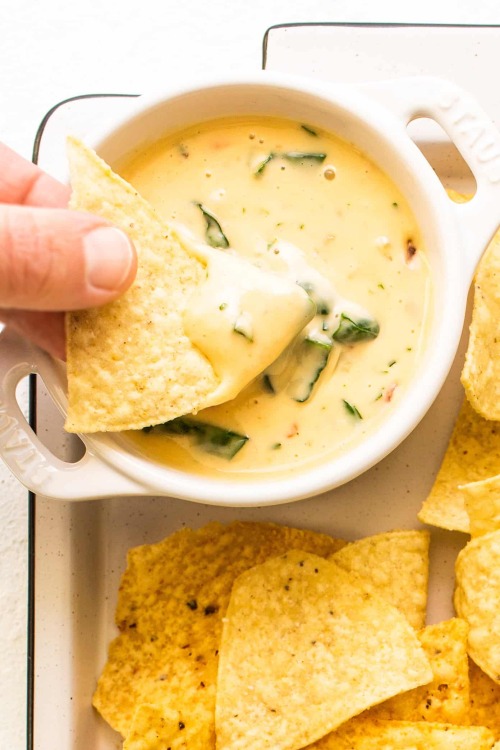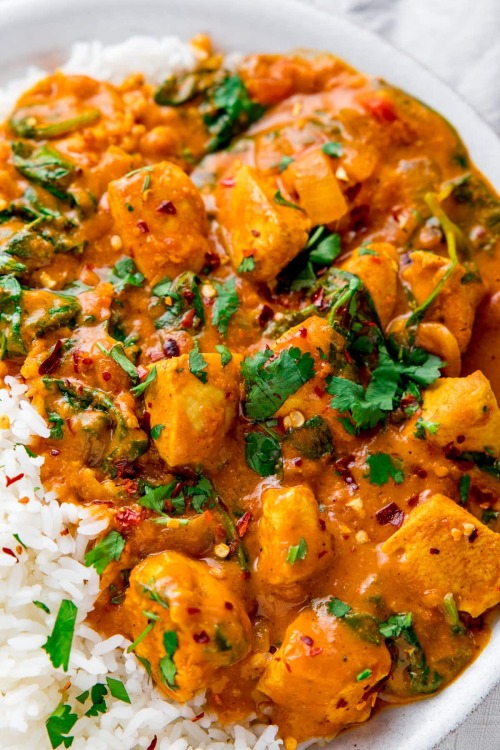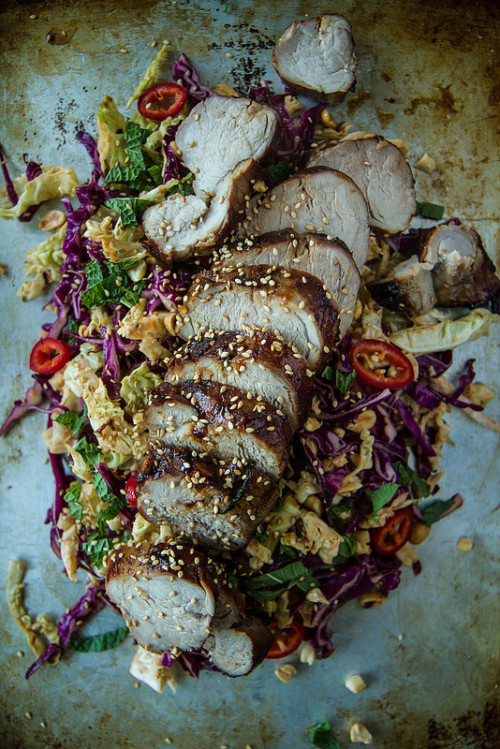#coriander
Corn Salsa
海外に暮らすお友達のレシピ
昨日のイギリスから
本日はアメリカへとやってきました
アメリカ在住のよしこさん
@yoshikosullivan のコーンサルサ
【魅惑悶絶天使のコーンサルサ】を作りました
すごい画数多い漢字がひしめき合ってる聖闘士星矢みたい
コーンサルサは、
日本の甘いぷちぷちとはじける
とうもろこしに、クリーミーなアボカド、フルーティーなトマト、ライムとパクチーの香りでググっと纏まって本当に美味しくて最高でした!
食べ終わりかけに、
もうどうにでもなっちゃえ!
と思ってトルティーヤチップをボウルに入れてスプーンで崩してチョップドサラダのようにボウル抱えて食べてしまいした!
この夏にぴったりのコーンサルサはフィッシュタコスに加えるさらにとんでもないことになってしまうんだとか
野菜を切って和えるだけなので、よしこさんのフィードのライブアーカイブより
作り方をチェックしてみてくださいね!
メキシカンっぽい器を持っていないので
ぽってりとしたかわいいベトナム陶器の
@tuhuceramics さんたちのを使いました。
話は反れるのだけど、
よしこさんとは地元が同じなのだ!
しかも家も本当に近所なのだ!
serve!!!
#eattheworld
#コーン #とうもろこし #サルサ
#cornsalsa #salsa #foodforfoodies #foodblogfeed #feedfeed #foodblogger #beautifulcuisines #huffposttaste #ellegourmet #shareyourtable #finditliveit #tuhuceramics #livethelittlethings #料理好きな人と繋がりたい #手作り #暮らしを楽しむ #暮らし #フーディーテーブル #おうちごはんlover #おうちごはん #おうちカフェ #アボカド #パクチー #avocado #coriander #アメリカ (, )
https://www.instagram.com/p/CQzTTcIAw5d/?utm_medium=tumblr
Post link
This week, I’m going to be recreating a simple carrot and coriander soup that was popular in medieval French cuisine - the simple Potage de Crécy. Although I’m using orange carrots, which were rare in antiquity, carrots, parsnips, or any combination of these would work well here!
In any case, let’s now take a look at The World That Was! Follow along with my YouTube video, above! Check out my Patreon for some more recipes!
Ingredients (for 2-3 portions)
1 onion (or an equal volume to the amount of carrots) chopped
3 carrots (or an equal volume to the amount of onions) diced
2 cloves garlic
olive oil
ground coriander
500ml stock (e.g. chicken, vegetable, etc.)
Method
1 - Prepare and Cook Onion
To begin with, we need to peel and chop one whole onion. Onions of all kinds were a staple of most cuisines from the neolothic period to modernity, as they’re hardy, filling vegetables that have a multitude of uses. In any case, chop this into fine chunks, so they cook evenly. When this is done, toss some olive oil into a pot, and heat it up over a medium high heat.
When the oil is shimmering, toss a couple of crushed cloves of garlic into the oil, along with your onions. On top of this, sprinkle some salt, some freshly ground black pepper, and some freshly ground coriander. Put all of this back onto a medium high heat for a few minutes while you deal with your carrots.
2 - Prepare and Cook Carrots
Go peel a few carrots - aim for about an equal amount of carrots to onions. When they’re peeled, slice them into discs - making sure they’re all the same size, so they cook evenly. Although orange carrots were fairly rare in antiquity, they’re the dominant strain today. But remember that throwing in some parsnips or heriloom carrots wouldn’t hurt either!
When your carrots are prepared, add them to your onions when the pot smells lovely and fragrant, and the onions have turned translucent. On top of your carrots and onions, pour about 500ml of a soup stock of your choice. I went with chicken stock here, to add a more meaty background taste, but any stock would work well enough here!
3 - Cook
Place your pot over a high heat, and let it come to a boil. When it hits a rolling boil, turn the heat down to low and let it simmer away for about 30 minutes, or until a knife, when stabbed into a piece of carrot, comes out easily.
Serve up in a bowl of your choice, garnish with a little sprig of parsley or cilantro, and dig in!
The finished soup is rather sweet, thanks to the carrots and onions, and has a lovely zesty taste thanks to the coriander. The broth thickened up nicely, and the carrot chunks softened into a toothsome mouthful.
This week, I’ll be taking a look at another medieval Syrian dish - this time, a simple pistachio sauce chicken bake! It’s a sweet and savoury take on a staple of near eastern cuisine at the time - fitting for most people in the medieval period to be able to make!
As with a few other recipes like this, many thanks to Charles Perry’s translations from the original Arabic textbooks!
In any case, let’s now take a look at The World That Was! Follow along with my YouTube video, above! If you like what I make, please consider supporting me over on Patreon!
Ingredients
250g chicken (any cut of meat)
300g pistachios
salt
pepper
ground cumin
ground coriander
honey
Method
1 - Season Chicken and Bake
To begin with, we need to prepare our chicken. Do this by cutting your cuts of meat with a knife, before seasoning your cuts with equal amounts of salt, pepper, ground cumin, and ground coriander. The original recipe doesn’t make note of any spices, but we can infer from elsewhere in the cookbook that cumin and coriander formed the core of medieval Syrian cuisine. So, season this liberally! When this is done, place your chicken onto a lightly greased pan, and then into the centre of an oven preheated to 180C for about 20 minutes. While this is cooking, go prepare your pistachios!
2 - Grind Pistachios, Make Sauce
Next, shell 300g worth of pistachios. This will result in a significantly lighter amount of shelled nuts, but this is suitable for about two or three portions of meat.
In any case, when they’re shelled, go crush them into a fine powder in a mortar and pestle. Try and go for a very fine sandy texture.
When these have been ground up, toss them into a pot, along with a tablespoon or two of honey, as well as a small splash of water if everything looks too dry. Put all of this over a medium heat, and let it cook away until the honey softens and bubbles. Keep it stirring, so the honey doesn’t burn onto the bottom of the pot. This should only take about 15 minutes to cook - if the sauce starts looking a little brown, quickly take it off the heat so it doesn’t burn. It’s safer to do this slow and low, rather than fast and high.
3 - Assemble Dish
When the chicken and the sauce is done, pour a generous amount of the sauce onto a plate, before arranging your chicken on top. Garnish with a few whole pistachios, and a few sprigs of parsley, and dig in!
The finished dish is a succulent and sweet meal, with a wonderful floral sensation from the spices. The original recipe claims the chicken should be cooked in the sauce itself. This could be done, but you’d probably need more sauce than I’ve made here - it would result in a cut of meat that was tenderly stewed, with the seasoning leeching out into the pistachio and honey sauce. I opted for preparing these separately, as it was more sanitary to do on the day. It’s just as likely that it was prepared like this in the medieval period as well, but was not recorded in the original text.
Basil:
Wealth, exorcisms, abundance, cleansing, love, banishment, prosperity, pleasure, fruitfulness, purifying, romance, accomplishment, and compassion.
Catnip:
Romance, attractiveness, cheerfulness, glamours, charms, pleasure, love, attraction, vitality, rejuvenation, hope, optimism, and happiness.
Chives:
Fortification, restoration, desire, prophecy, defense, revitalization, curative, lust, pleasure, insight, protection, healing, sensuality, and divination.
Cilantro:
Peace, romance, emotional healing, shadow work, harmony, love, soothing, cleansing, amorousness, physical healing, synchronization, calming, purification.
Dill:
Wealth, desire, success, sensuality, security, romance, serenity, affection, harmony, fortune, lust, prosperity, protection, tranquility, love, and peace.
Fennel:
Protection, healing, purification, shield, homoeopathic, banishing, defense, healing, expelling, fortification, curative, and refinement.
Mallow:
Romance, protection, banishment, amorousness, safety, cleansing, love, defense, exorcisms, compassion, fortification, and warding.
Mint:
Prosperity, joy, fertility, purification, love, success, affluence, happiness, fruitfulness, cleansing, romance, compassion, and achievement.
Mugwort:
Prophetic dreams, divination, protection, grounding, warding, connection, enlightenment, psychic powers, strength, and astral projection.
Oregano:
Romance, luck, justice, wealth, amorousness, blessings, righteousness, prosperity, compassion, fortune, affluence, desire, success, and fairness.
Parsley:
Lust, protection, cleansing, wealth, sensuality, defense, purification, wealth, desire, fortification, dispelling, success, cleansing, and prosperity.
Peppermint:
Wealth, happiness, lushness, cleansing, love, victory, prosperity, pleasure, fruitfulness, purifying, romance, accomplishment, and compassion.
Rosemary:
Protection, vitality, intellect, romance, cleansing, sensuality, banishing, purification, vitality, cerebral control, and mental strength.
Spearmint:
Revitalization, romance, intellect, healing, love, recognition, dexterity, freshness, knowledge, abundance, compassion, revitalization, cleansing, and wealth.
Thyme:
Healing, restfulness, psychic power, romance, courage, cleansing, calming, restoration, tranquility, amorousness, bravery, purification, and soothing.
Allspice:
Abundance, healing, motivation, protection, vitality, amplification, energizing, revitalization, inspiration, boosting, prosperity, success, and regard.
Anise:
Fertility, warding, adoration, bliss, psychic ability, protection, unity, fortune, happiness, romance, fecundity, union, and compassion.
Bay Laurel:
Victory, prosperity, justice, power, psychic ability, warding, transformation, amplification, wealth, respect, protection, and divination.
Cayenne:
Courage, warding, confidence, vitality, ambition, banishment, valour, protection, loyalty, longevity, magnificence, determination, and purification.
Cinnamon:
Abundance, amplification, confidence, speediness, romance, luck, protection, glamours, happiness, wealth, protection, and courage.
Cloves:
Empowerment, warding, abundance, positivity, luck, achievement, confidence, attractiveness, glamours, optimism, hope, protection, and triumph.
Coriander:
Fortification, restoration, desire, prophecy, defense, revitalization, curative, lust, pleasure, insight, protection, healing, sensuality, and divination.
Cumin:
Luck, protection, balance, manifestation, regard, security, attraction, warding, fortune, harmony, shielding, affluence, and fortitude.
Galangal:
Hex-breaking, healthiness, banishment, sensuality, prosperity, purification, healing, longevity, lustfulness, attraction, and dispelling.
Ginger:
Banishment, romance, sensuality, cleansing, hex-breaking, attraction, love, abundance, prosperity, compassion, adoration, and expelling.
Nutmeg:
Restoration, prosperity, tranquility, longevity, cleansing, elegance, glamours, beauty, healing, abundance, luck, calming, and purification.
Paprika:
Protection, spirituality, fortune, alignment, generosity, affection, romance, magnificence, sensuality, warding, security, and connection.
Pepper:
Activation, protection, connection, hex-breaking, purification, shielding, energizing, banishment, warding, charging, and fortifying.
Star Anise:
Divination, prosperity, awareness, abundance, protection, warding, prophetic dreams, psychic power, insight, affluence, wealth, and connection.
Turmeric:
Confidence, purification, fertility, abundance, protection, banishment, hex-breaking, cleansing, wealth, fortune, warding, and safety.

There can be only one answer.
Bloody Coriander (cilantro).

Scan the barcode


Glorie

“i want you to hit me, as hard as you can”
Cori, Farrokh and Nadia shenanigans and farrokh thinks this is just utterly stupid.
Nadia just wants to see Cori get turned to a red paste
(this started out as perspective practice, lol)

been bussyyy recently.
Did MCM london this weekend which was super good! and ill be bat bham in a couple of weeks
This week, I’m going to be recreating a simple carrot and coriander soup that was popular in medieval French cuisine - the simple Potage de Crécy. Although I’m using orange carrots, which were rare in antiquity, carrots, parsnips, or any combination of these would work well here!
In any case, let’s now take a look at The World That Was! Follow along with my YouTube video, above! Check out my Patreon for some more recipes!
Ingredients (for 2-3 portions)
1 onion (or an equal volume to the amount of carrots) chopped
3 carrots (or an equal volume to the amount of onions) diced
2 cloves garlic
olive oil
ground coriander
500ml stock (e.g. chicken, vegetable, etc.)Method
1 - Prepare and Cook Onion
To begin with, we need to peel and chop one whole onion. Onions of all kinds were a staple of most cuisines from the neolothic period to modernity, as they’re hardy, filling vegetables that have a multitude of uses. In any case, chop this into fine chunks, so they cook evenly. When this is done, toss some olive oil into a pot, and heat it up over a medium high heat.When the oil is shimmering, toss a couple of crushed cloves of garlic into the oil, along with your onions. On top of this, sprinkle some salt, some freshly ground black pepper, and some freshly ground coriander. Put all of this back onto a medium high heat for a few minutes while you deal with your carrots.
2 - Prepare and Cook Carrots
Go peel a few carrots - aim for about an equal amount of carrots to onions. When they’re peeled, slice them into discs - making sure they’re all the same size, so they cook evenly. Although orange carrots were fairly rare in antiquity, they’re the dominant strain today. But remember that throwing in some parsnips or heriloom carrots wouldn’t hurt either!When your carrots are prepared, add them to your onions when the pot smells lovely and fragrant, and the onions have turned translucent. On top of your carrots and onions, pour about 500ml of a soup stock of your choice. I went with chicken stock here, to add a more meaty background taste, but any stock would work well enough here!
3 - Cook
Place your pot over a high heat, and let it come to a boil. When it hits a rolling boil, turn the heat down to low and let it simmer away for about 30 minutes, or until a knife, when stabbed into a piece of carrot, comes out easily.Serve up in a bowl of your choice, garnish with a little sprig of parsley or cilantro, and dig in!
The finished soup is rather sweet, thanks to the carrots and onions, and has a lovely zesty taste thanks to the coriander. The broth thickened up nicely, and the carrot chunks softened into a toothsome mouthful.













